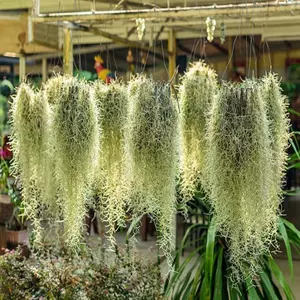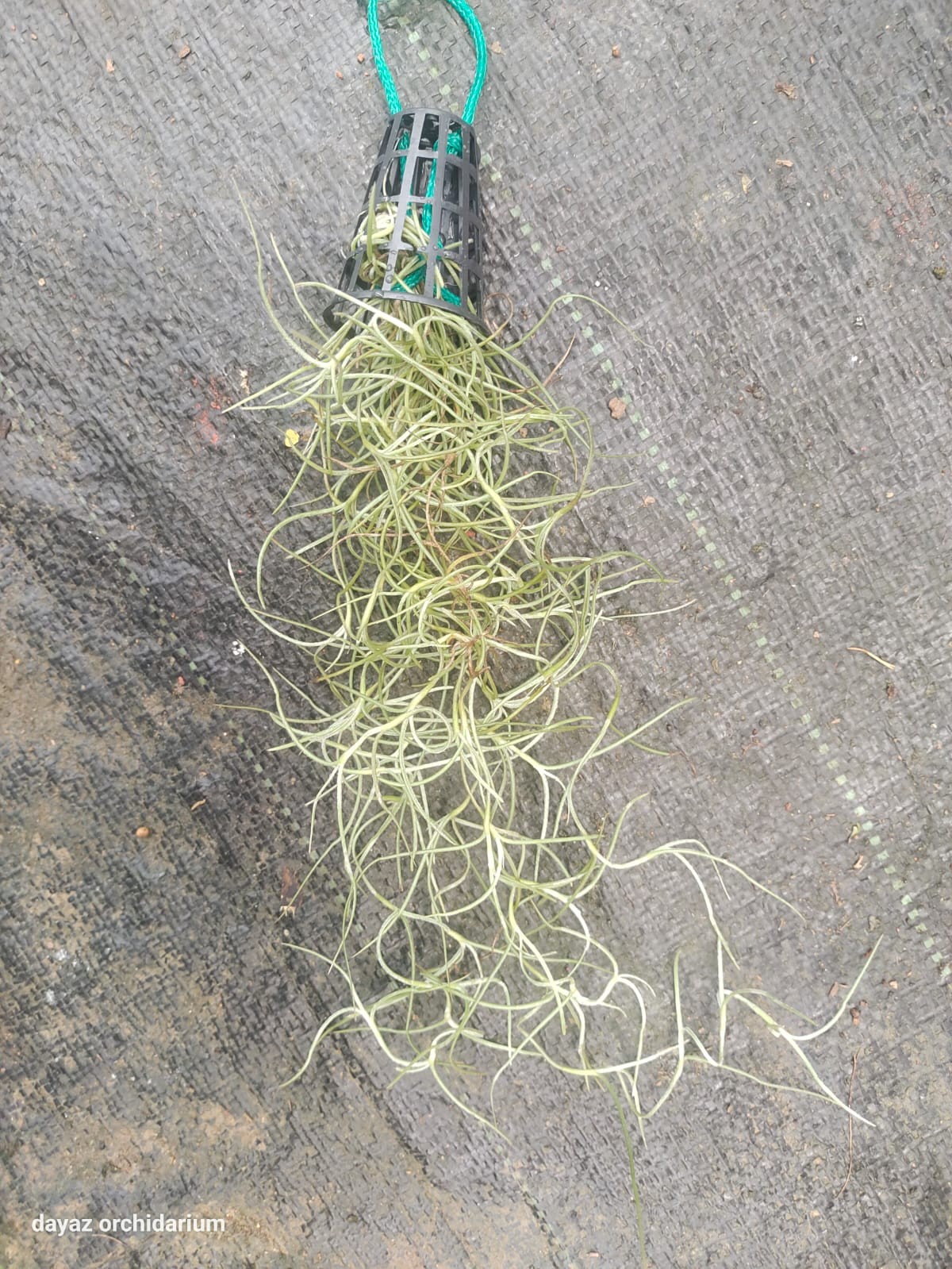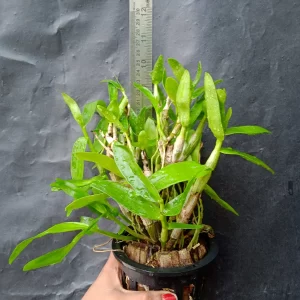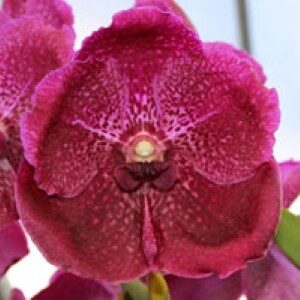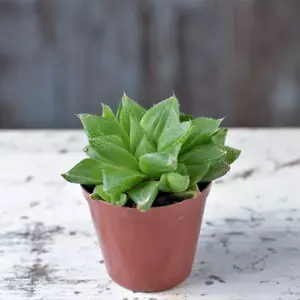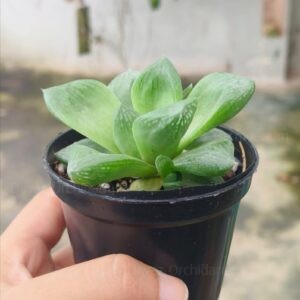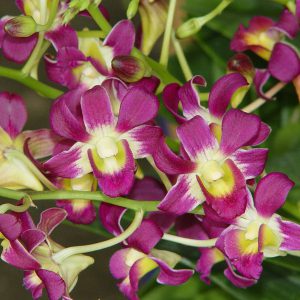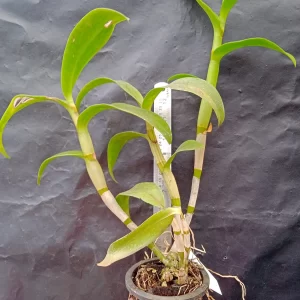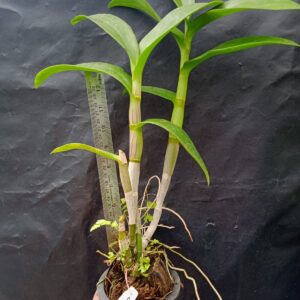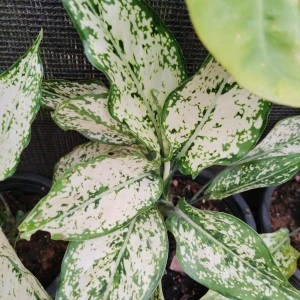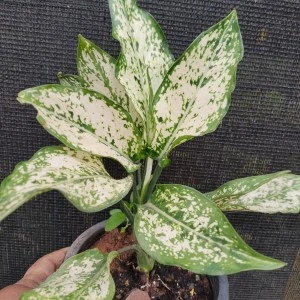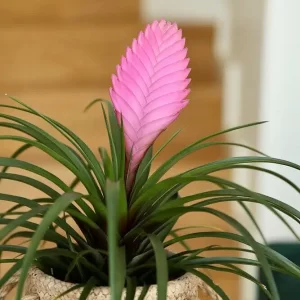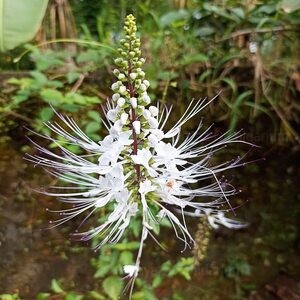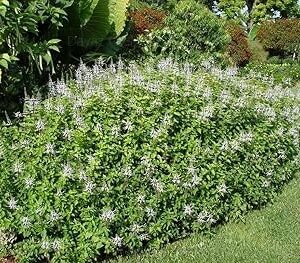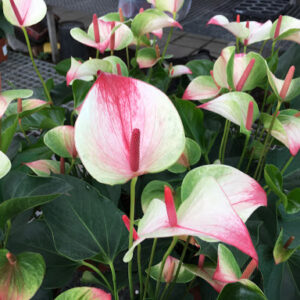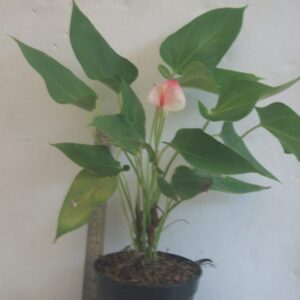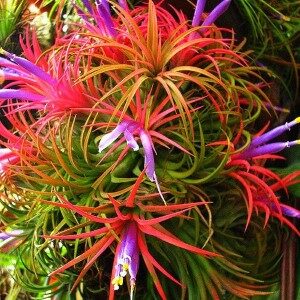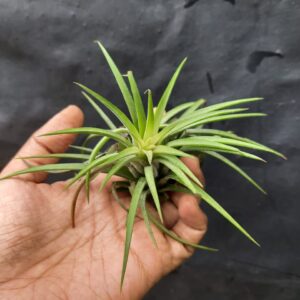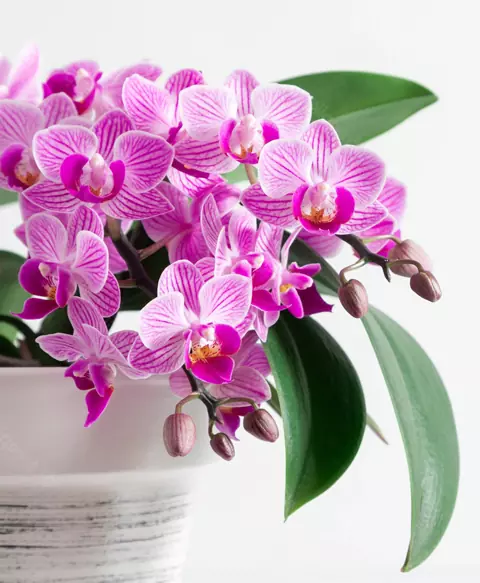Spanish moss (Tillandsia usneoides) is an epiphytic plant often seen hanging from tree branches in the southeastern United States, particularly in humid, coastal areas. Despite its name, it is neither a true moss nor Spanish. It’s a member of the bromeliad family and uses trees only for support, not for nutrients, as it absorbs water and nutrients from the air through its leaves. It is often found on live oak and bald cypress trees and has a distinctive, draping appearance that can create a hauntingly beautiful effect in southern landscapes. Fertilization is usually not necessary, but if desired, use a diluted, water-soluble fertilizer sparingly, no more than once a month during the growing season. Spanish moss can be hung from trees, wire frames, or other supports. It should be placed where it can drape and grow naturally.
Z Out Of Stock: Spanish Moss (Tillandsia usneoides)
Original price was: ₹600.00.₹300.00Current price is: ₹300.00.
Light: Spanish moss prefers bright, indirect light. If grown indoors, place it near a window where it can receive filtered sunlight.
Humidity: High humidity is essential. Mist the moss regularly with water to keep it hydrated, especially if you live in a dry climate.
Watering: Spanish moss needs to be misted or soaked in water. If soaking, immerse it in water for 15-20 minutes about once a week, more frequently in hot, dry weather.
Air Circulation: Good air circulation is important to prevent rot. Ensure it has plenty of space around it to allow air to flow freely.
Temperature: Spanish moss thrives in temperatures between 50-90°F (10-32°C). It can tolerate brief periods of cold, but prolonged exposure to freezing temperatures can damage it.
Out of stock


